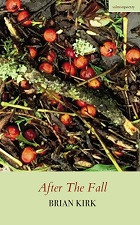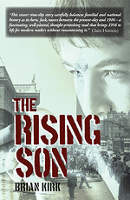I came across this blog post and call for submissions last week over at Todd Swift’s blog, Eyewear – The Poet’s Quest for God: 21st Century Poems of Spirituality. It caught my interest for a number of reasons. I come from a traditional Catholic Irish background and God and religion – whether we liked it or not – played a huge part in my life and that of my peers growing up. As we grew and found our own ways and voices, the routine demands of that religion became only a nuisance and then later an embarassment, something to be shed before we could become fully modern or properly European or artistically legitimate.
As a young poet I was always more concerned with my quest to lose God completely, influenced as I was early on by Nietzche and French Existentialism. But there were other influences too, people whose work I admired, who hadn’t abandoned the outmoded concept of an all-powerful higher being. The Beats of course, Kerouac and Ginsberg particularly, and also much closer to home there was Kavanagh. His poetry alone did more to undermine my best attempts at an aloof and urban intellectual atheism than any other single writer.
But there were always other factors at play, preventing me from dispatching this God who had been foisted on me without my bidding; the quotidian social interactions that make up our lives for instance, and then those defining life events, the births, the deaths, the marriages and all the other stuff, formal and informal, in between. Each time a child is born to a relative or friend, or someone close to you dies, you are drawn back into the web of traditional belief via ceremony, ritual and rite. You feel that pull again. Sometimes you fight it, but it’s not really a constraint. But you couldn’t call it a burning faith either, a road to Damascus moment that could change the way you live your life, but sometimes religion can offer a route to consolation in difficult times or a way of being close to loved ones while sharing a celebration. I’m thinking now of my son’s upcoming First Communion and the gathering of family that will occur on that occasion. At it’s best organised religion facilitates that kind of fellowship. We know the flip side all too well, we’ve seen it all too often in recent years.
Over the years I’ve toyed with the idea of addressing God and/or religion in poems and stories. It isn’t ccol to talk or write about God, it never was, so you don’t often get characters in stories searching for that kind of truth. I’m reading Jeffrey Eugenides’ The Marriage Plot at the moment which contains just such a character, a young man who is as normal as any other young man, but who is seeking meaning via God and religion. It may sound daft, but he’s a compelling and human character – in other words, he’s no different to any other young man in his desire and uncertainty. In the narrative canon there are many variations on the Prodigal Son trope, but poetry offers, I think, a better, more complex and more honest approach to the subject of God, particularly for those of us who still like to hedge our bets.
Submissions close on 1st August 2012. I’m working on something even as I write.


